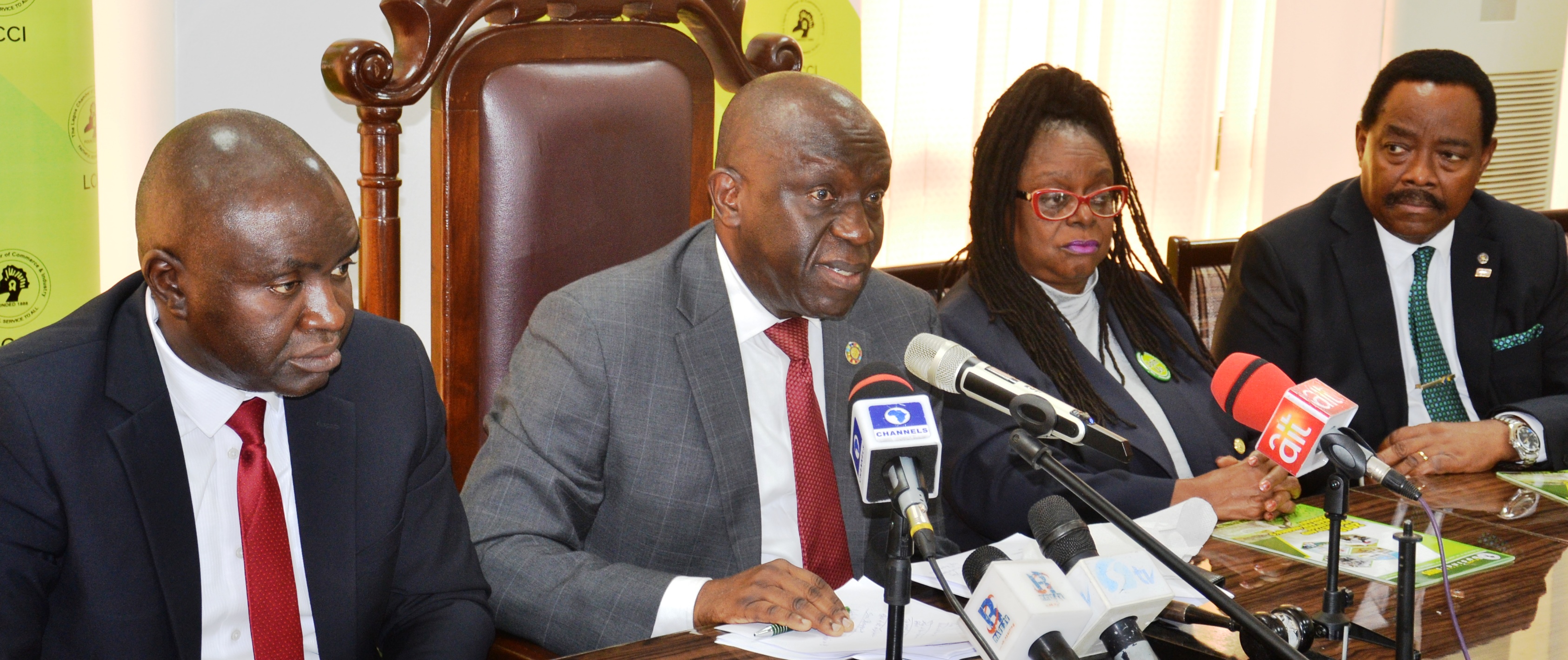By Omoh Gabriel
Lagos Chamber of Commerce and Industry has said that the extension of the closure of Nigeria land borders to 31st January 2020 has led to theunintended consequences of complete shut down of cross border trade, imports and exports, between Nigeria business and their counterparts in the west subregion. Nigeria Customs Service had said that the land borders will be closed to trade until at least January 31, 2020. Nigeria launched a partial border closure in August to tackle smuggling of rice and other goods. Last month the head of customs confirmed that all trade via land borders was halted indefinitely. Joseph Attah, spokesman for the Nigerian customs service said the “present phase” of the closure would end on January 31, 2020, and that would not be the end of the closure. “The operation is in phases, it will continue until the set objective is attained,” Attah said. A private memo sent by the customs service comptroller for enforcement, Victor Dimka, to colleagues called the closure operation an “overwhelming success”, but said there were some strategic objectives yet to be achieved. The memo did not outline which objectives these were.
In a statement reacting to the extension of the closure signed by Muda Yusuf the Director General of LCCI said that the closure has grave consequences for investments and jobs. According to Yesuf “many industries have invested in products registered under the Ecowas Trade Liberalisation scheme [ETLS]. These are investors whose business models were anchored on market opportunities in the ECOWAS. “These investments have been completely disrupted and dislocated. Majority of the victims of the border closure are small businesses, most of them in the informal sector. Their means of livelihood has been put in great jeopardy. This class of traders do not have the capacity to move their products by sea because of the modest scale of their operations. Supply chain of some business have been completely disrupted.
“Maritime sector investors have been denied opportunities offered by transit cargo destined for landlocked countries which normally comes through the Nigerian ports. The closure has triggered an unprecedented hike in prices with a devastitating impact on the poor. This implies further aggravation of the poverty situation in the country”. The Chamber said that Nigeria needs to fix some fundamental governance shortcomings as part of a sustainable solution. Some of these are as follows: Nigeria need to fix its institutions for effective border management and policing. It needs to review its import tariff policies for better compliance. Current tariffs and charges are prohibitive.
Nigeria it continued needs to review its foreign exchange policies to discount inherent subsidies. Besides the exchange rate should reflect the key economic fundamentals. Nigeria needs to fix its infrastructures in order to build an economy that is efficient, productive and competitive. Current infrastructure financing is grossly inadequate to make the economy competitive. High production cost remains a fundamental problem for the economy. The LCCI boss also said that Nigeria needs to fix the seaports to reduce cargo diversion.
“Clearing cargo at the Nigerian ports is one of the most expensive and cumbersome in the world and that Nigeria needs to urgently reform the oil and gas sector to free resources for infrastructure development and promote investment in the sector. The recently inaugurated Economic Advisory Council should live up to the high expectations of Nigerians by offering sustainable and coherent policy options to government to save the economy and investors from further disruptions and dislocations arising from inappropriate policy choices”.

